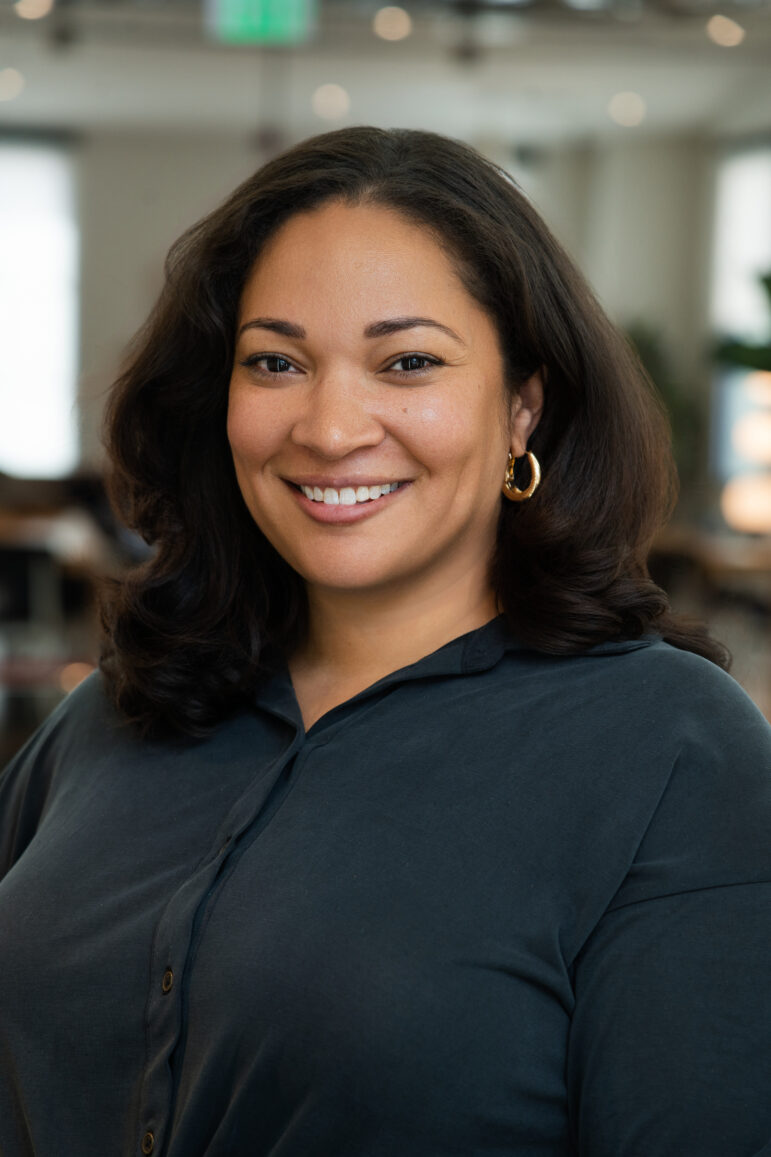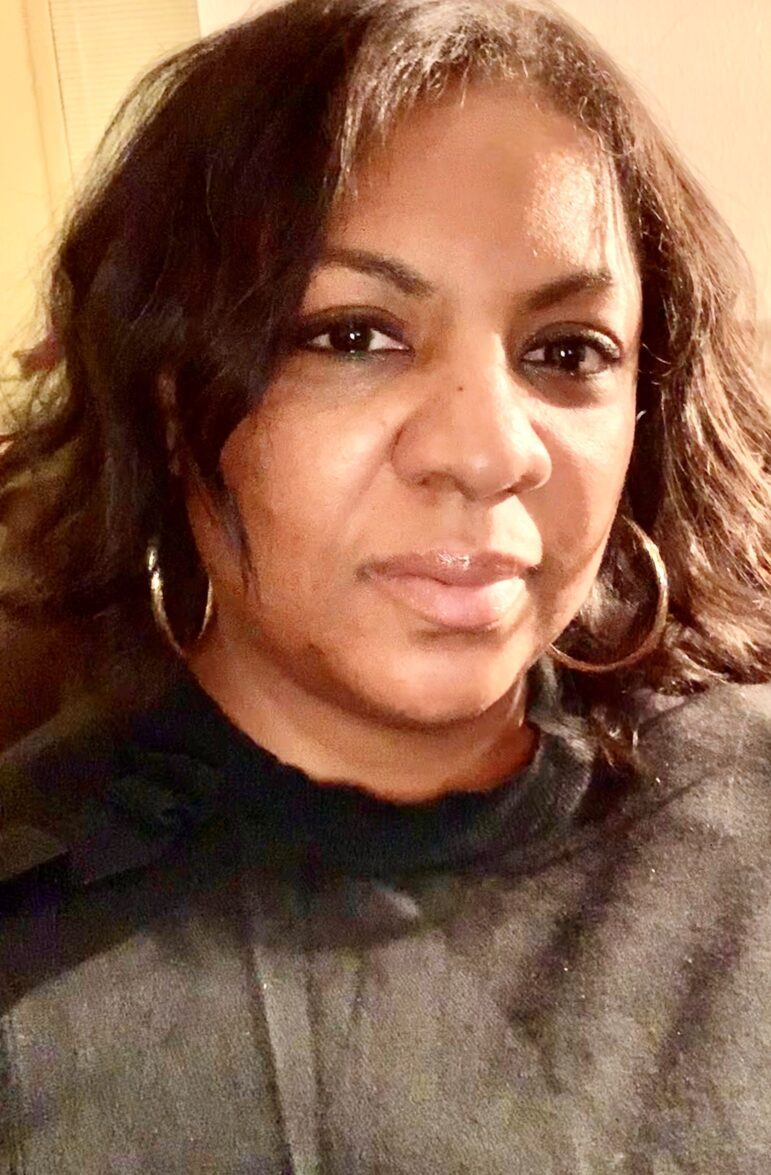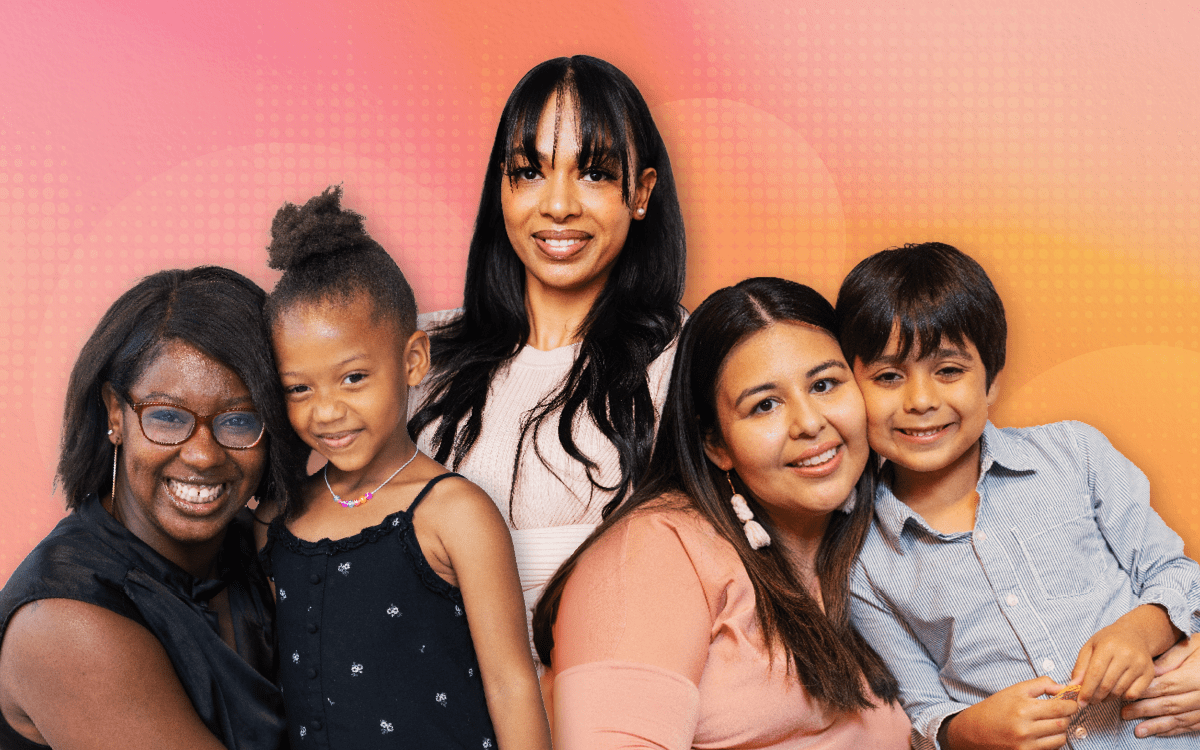How Jeremiah Program Supports Single Mothers in Overcoming Shame
By changing our assumptions about families experiencing poverty, we can create a society where single mothers have opportunities to pursue their goals for themselves and their children.
When 2024-2025 Jeremiah Program Alumni Fellow Stasia Saunders was a young single mom, she knew it was important to get her education and not get stuck in dead-end jobs, barely able to survive. Upon signing up to take advantage of her county’s medical and other benefits, she found herself between a rock and a hard place:

They said, “Well, we can give you medical, food, and some cash,” and I thought, Great! But they were like, ‘To get the cash, you can’t be in school.” … And I thought, Well, that’s dumb. Why wouldn’t you want me to go to school so I can get a better job and get off this and get my education? And I just remember feeling like, Ohh, this is where it happens. This is how you get stuck. I really needed the money, too, at that time. So a part of me wanted to do that, but I did not want to be stuck in that anymore.
Too many single moms like Stasia are working hard to provide for their children and not only survive the day, month, or year; they’re working to create bright futures for themselves and their children. They sacrifice daily so that they and their families can have opportunities and choices to chart the lives they dream for themselves.
Yet, like Stasia, many single moms face an impossible choice: Get support to scrape by or make a longer-term investment in your family’s future without help. These women often find themselves at the intersection of multiple barriers, making it extremely difficult to break free from the cycle of poverty. In fact, 30% of single mothers and their children live below the poverty line, and for those moms without college degrees, that number jumps to 41%. These statistics underscore a harsh reality: Single mothers are disproportionately affected by poverty, and the stereotypes surrounding them only exacerbate the problem.
The Shaming of People Experiencing Poverty
Despite their greatest efforts to provide for their families, single mothers often face societal shaming. The big source of shame is their status as single: “You shouldn’t have had kids before you were ready.” “You should have waited until marriage.” “You should have made better decisions.” Whether they become single because of death, divorce, or just a relationship that didn’t work out, these women are doing their best for their children. Their families should have the same opportunities as other families.
Single moms often work long hours, sometimes in multiple jobs. They juggle child care and navigate a maze of challenges, and, if they’re like our JP moms, they’re also juggling school. 2022-2023 JP Alumni Fellow Jinaa Lane was one of them, and her commitment to investing in both her future and her child’s is a testament to the sacrifices a mom will make to create a better life for her family:

It is 5:30 a.m. I rise and get ready for the day. I wake up my daughter, who is 5 years old. I help her with her morning routine. By 6:30 a.m., we are out the door. First, I drop her off at the before-school care program. I then run four and a half blocks to catch the 7:05 a.m. train in downtown Minneapolis so I can catch the 7:40 a.m. bus to get to St. Catherine University in St. Paul by 7:55 a.m. I run across campus to get to my 8 a.m. class, sliding in by the skin of my teeth. I will then attend three additional classes and rush to catch more public transportation to get to one of my three jobs. I leave work at 7 p.m. in St. Paul and go back to downtown Minneapolis to pick up my daughter. The after-school program has ended, and my daughter has been taken upstairs to the pool for swim team practice. I arrive as swim practice is ending. After the post-swim practice routine, we make our way home, where we arrive after 9 p.m. I hurry to make dinner, eat, and send my daughter to bed most days at 10:30 p.m. I try to shake the overwhelming exhaustion and study. It is almost impossible to keep my eyes open.
Yet, single moms experiencing poverty are frequently portrayed as lazy or irresponsible. Dr. Brené Brown’s work on shame resilience sheds light on this issue, defining shame as “an intensely painful feeling or experience of believing we are flawed and therefore unworthy of acceptance and belonging.” This is in contrast to guilt, which results from behaving in a flawed way, rather than being a flawed person. This distinction is crucial in understanding the shame experienced by people experiencing poverty, particularly single mothers.
Internal versus External Shame and Their Impact
Cade L. Arnink identifies two distinct forms of shame: internal and external. External shame is imposed by society or larger social groups, while internal shame arises from a perceived difference between a person’s true self and an ideal version of oneself. Single mothers often grapple with both forms of shame.
External narratives, such as those that depict them as “bad moms” or “bad decision makers,” can contribute to internalized feelings of inadequacy. Even as single moms move up the economic ladder, they still often must work to shed this shame.
The narratives surrounding poverty and single mother families are not just words; they have real-world consequences. How we talk about poverty shapes how we treat people experiencing poverty and influences the policies we support. For example, policies that could benefit single mothers might fail to pass or even be proposed if the dominant narrative portrays these moms as unworthy or incapable. This highlights the urgent need to change the way we talk about single mothers and poverty.
Changing the Narrative: A New Story for Single Moms
“The only way to disrupt the entrenched stigma is to replace it with a new narrative,” says JP President and CEO Chastity Lord, “one grounded in the agency, resilience, and power of single moms experiencing poverty.” This new narrative is especially critical within higher education and the workforce, both of which are key to economic mobility. When hiring managers or college administrators adopt this new narrative, they become allies rather than barriers to a single mom’s success.
For example, a JP mom shared, “One of the biggest challenges of being a student parent is going to a professor and saying, ‘My son was sick’ and having them understand that.” Another said that professors “don’t want to hear about it.”
At JP, we are committed to reframing the narratives that position single mothers experiencing poverty as “bad moms” and “bad decision makers.” Our work is rooted in the belief that single moms are already great moms and leaders. They do not need interventions on how to be great parents any more than middle-class moms do. What they need are opportunities to pursue their goals and dreams.
“I used to be ashamed of myself. I felt alone, but these sessions have helped me own my story. I am strong. I am more than just a mom. I have goals and I can reach them.” – Empowerment and Leadership Mom
Empowerment and Leadership: Supporting Narrative Change
JP’s Empowerment and Leadership (E&L) course is a 12-week, cohort-based program designed to help single mothers combat the stigma and shame associated with being a single mom on the financial margins. They engage with other moms in similar situations, validating their experiences. One of the program’s primary goals is to help moms free themselves from external shame and reclaim their stories from a place of pride.
The impact of the E&L course is evident in the stories shared by participants. Many moms have expressed how the program helped them recognize external sources of shame, allowing them to separate this stigma from their own self-worth. After completing the course, many participants credited E&L for helping them see these harmful narratives for what they are: external constructs, not internal truths.
“I used to be ashamed of myself,” one mom shared. “[I] felt alone, but these sessions have helped me own my story. I am strong. I am more than just a mom. I have goals and I can reach them.”
Another mom emphasized the fact that going through E&L with a group of other single moms was key to her new mindset: “They allowed me to release amounts of shame I thought were mine to keep and hide away,” she explained, “but listening to the ladies speak about their shame and what is holding them back made me see my story in a different light.”
While still going through the course, another mom confidently reclaimed her identity: “I constantly mom-shamed myself, but now going to E&L, I start to tell myself I did the best I can today, and I am proud.”
Changing the Narrative, Changing Lives
JP’s work is not just about helping single mothers survive; it’s about helping them thrive by changing the narratives that hold them back. To learn more about our work and the impact we’re having on single moms across the country, we invite you to explore our full report.
By changing our assumptions about families experiencing poverty, we can create a society where single mothers have opportunities to pursue their goals for themselves and their children and are recognized for their strength, resilience, and leadership.
If you’re inspired by our mission, consider joining our efforts to support single mothers and change the narrative surrounding poverty. A monthly gift goes further to support JP families.

